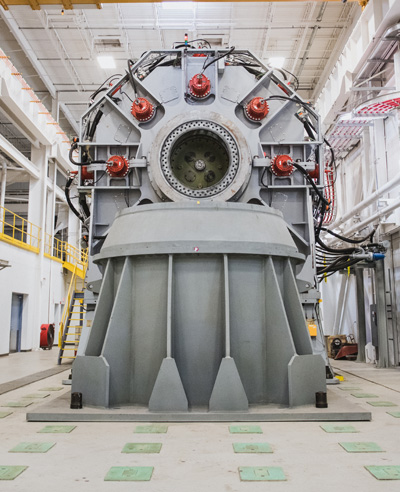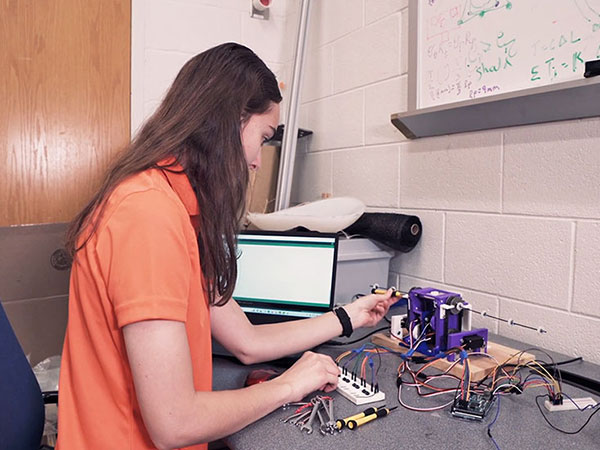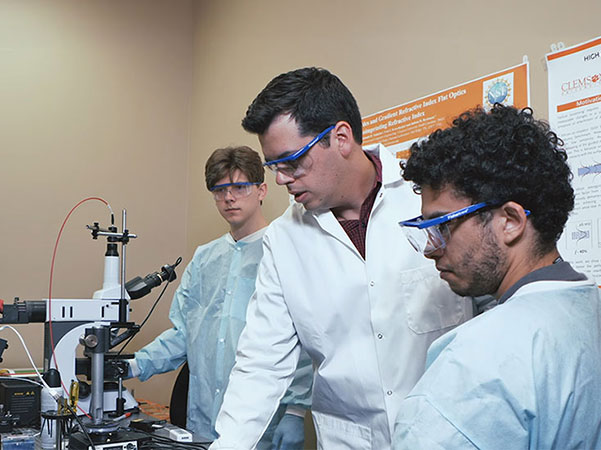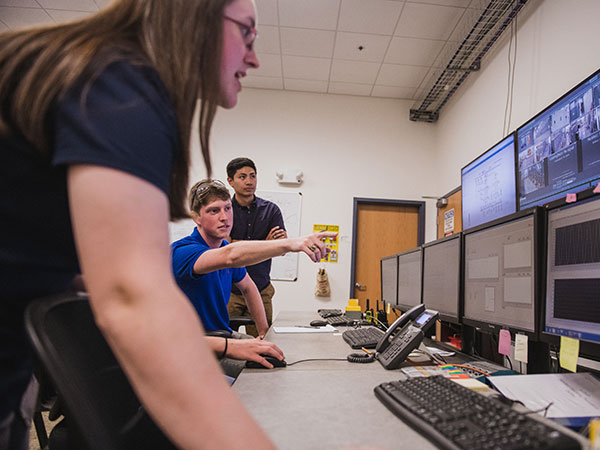Shaping Modern Life
Electrical and computer engineers have shaped much of modern life and continue to be urgently needed to help solve global problems and challenges related to energy, communications, health care, global warming, and national security. From handheld communications to solar panels, from cardiac pacemakers to autonomous robots, electrical and computer engineers have solid career and research potential.

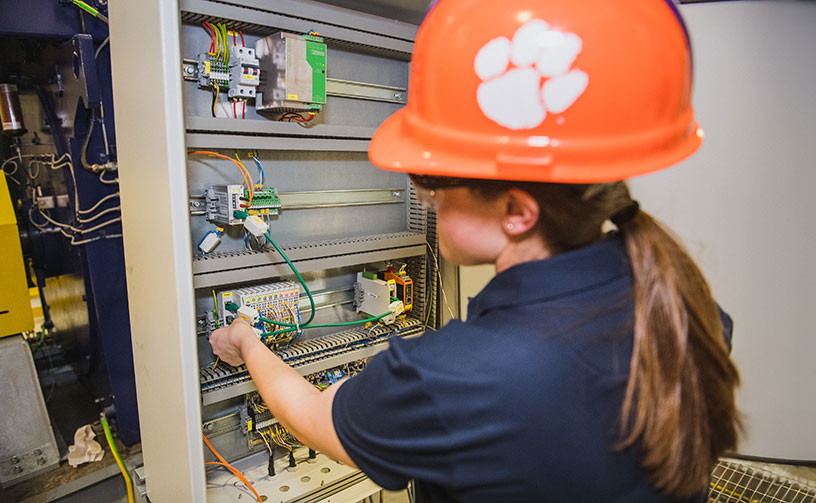
Tomorrow's Innovators
Clemson's Electrical and Computer Engineering (ECE) department prepares students to become tomorrow's technological innovators.
Our comprehensive program bridges rigorous academic training with real-world problem-solving, positioning graduates at the forefront of technological advancement.
Why Choose Clemson ECE?
- Internationally recognized research faculty
- State-of-the-art research facilities
- Hands-on learning through senior design projects
- Competitive graduate research fellowships
- Industry-aligned curriculum with a cutting-edge technological focus
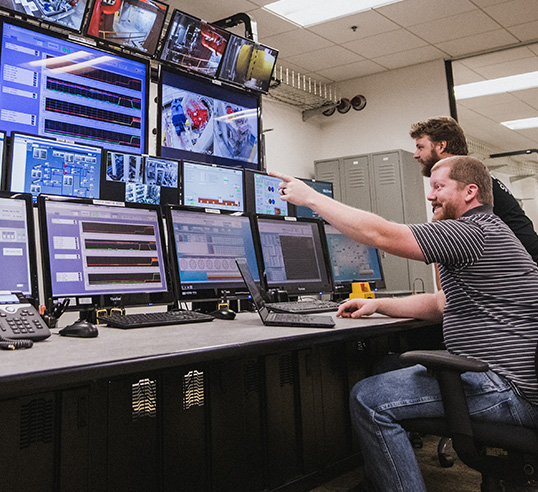
Career Paths
ECE graduates enjoy exceptional career prospects, with median starting salaries ranging from $70,000 to $95,000. The South Carolina Upstate region sees comparable salaries to nationwide numbers. Our alumni work in leading technology companies, research institutions, and innovative startups across sectors, including:
- Semiconductor design
- Telecommunications
- Aerospace and defense
- Renewable energy
- Advanced computing
Culture of Innovation and Collaboration

Supercomputer Competition
The International Conference for High-Performance Computing, Networking, Storage, and Analysis (SC) represents the pinnacle of supercomputing innovation, where Clemson ECE students showcase their expertise in the Student Cluster Competition (SCC). This intensive 48-hour challenge puts undergraduate and graduate teams against peers from top international institutions, requiring them to build, tune, and run complex applications on their own cluster while managing strict power constraints.
Clemson's ECE department has established a strong presence in this prestigious competition, where students apply theoretical knowledge to real-world high-performance computing challenges. Participants gain hands-on experience with cutting-edge hardware, develop advanced system optimization skills, and network with industry leaders.
David Krasowka was a first-place finisher at the Association for Computer Machinery's SC22 conference in the Student Research Competition - a victory after missing out the previous year.
Krasowska’s path through Clemson underscores how research enriches the academic experience and helps prepare students to be leaders and innovators of the future. He began conducting research with Jon Calhoun shortly after enrolling at Clemson.
Their work together focused on lossy compression in high-performance computing for scientific applications and later resulted in a first-author listing on a research paper for David while still an undergraduate.
“The people are what makes Clemson,” he said. “There are so many people here, so many different backgrounds, and there are so many outstanding talents, whether it’s peers, mentors, professors or whoever. They are incredible just to have a chat with. I love it.”
David KrasowskaComputer Engineering B.S. '22
Collaborative Community
Our department creates an environment where innovation thrives through collaboration, hands-on experience, and direct mentorship. Graduate and undergraduate students find themselves part of a dynamic community that balances academic rigor with practical application, supported by modern facilities and engaged faculty.
Our Faculty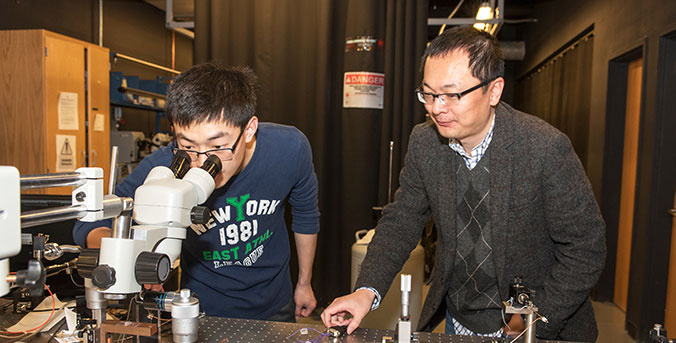
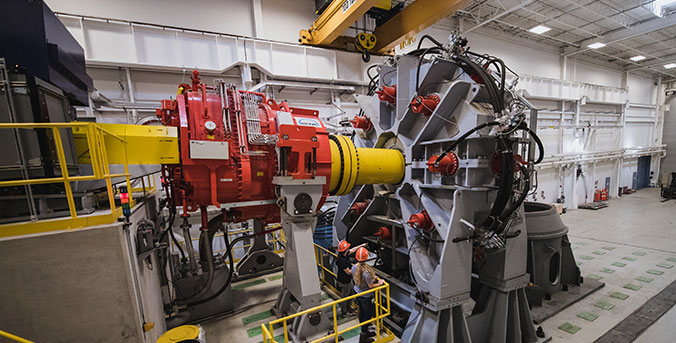
Research Innovation
Our faculty leads groundbreaking research in emerging technological domains, including quantum computing, advanced telecommunications, renewable energy systems, and cybersecurity. Students collaborate directly with faculty on projects funded by prestigious national research institutions, providing unparalleled opportunities for hands-on technological development.
Our Research LabsSchedule a Tour
The College of Engineering, Computing and Applied Sciences invites prospective undergraduate students to visit campus to learn about the programs and facilities. The tours are led by students currently enrolled in the College of Engineering, Computing and Applied Sciences. To register or learn more about our tours, visit the College's Tour Page. The Electrical and Computer Engineering option is under the Academic Information on the tour request form.
For graduate program tours, please email the program contact. Allow 1-2 weeks' notice before visiting so that you may be able to meet faculty and current students and attend some classes.
Undergrad Tour Graduate Tour
